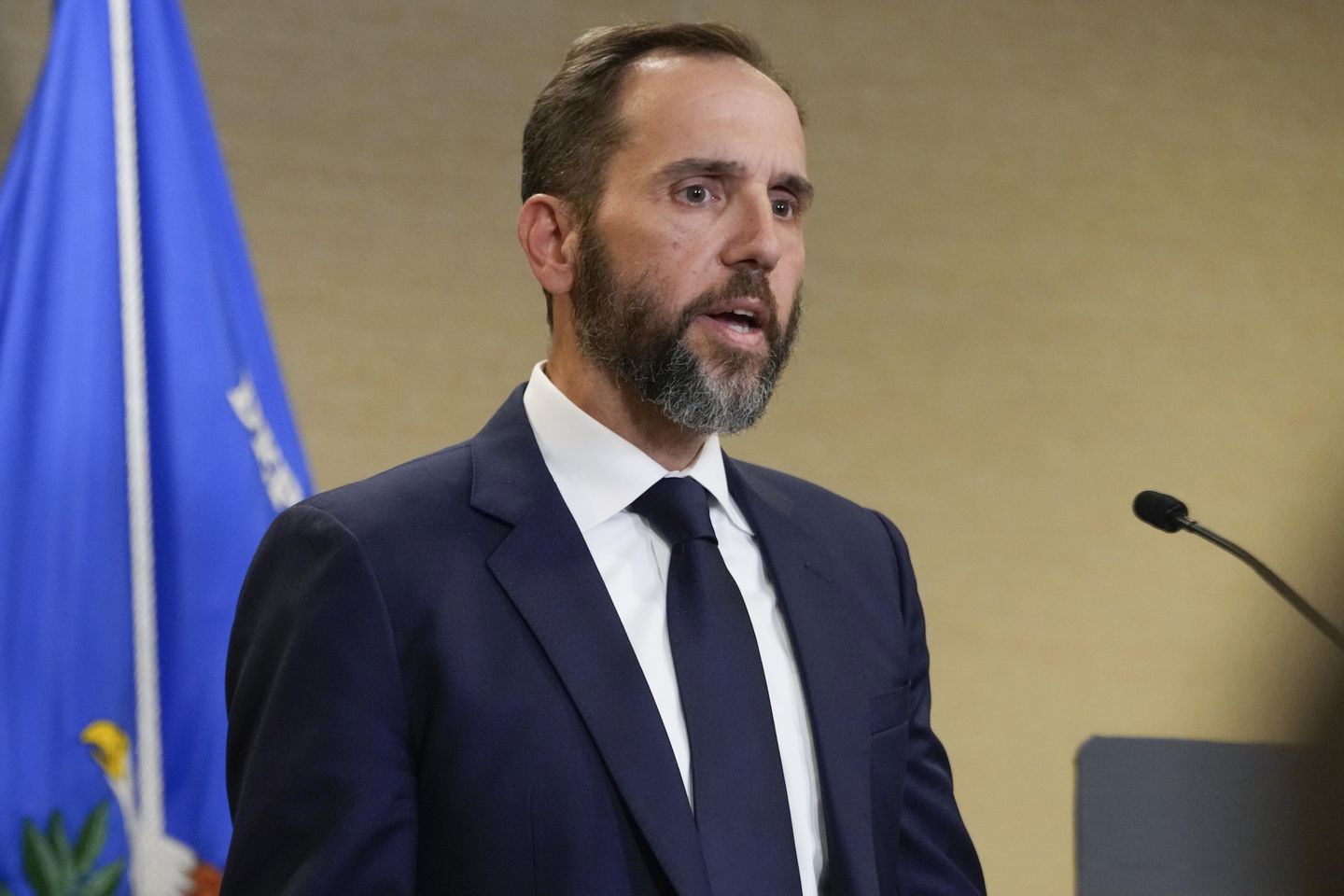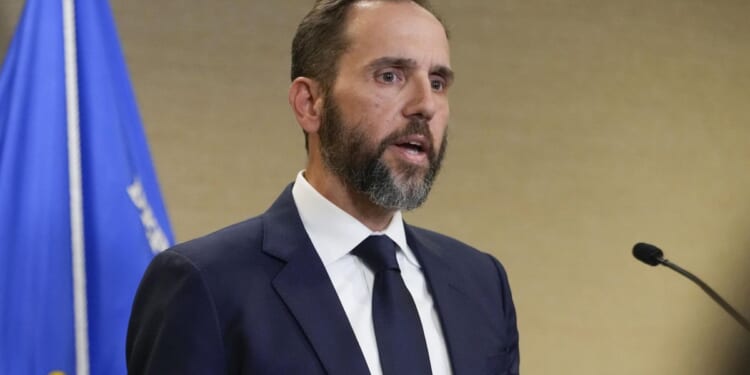
Special counsel Jack Smith is facing an ethics complaint for potential violations of Justice Department rules in his prosecution of former President Donald Trump.
In a letter sent Tuesday to the head of the Office of Professional Responsibility at the Justice Department, Rep. Elise Stefanik, New York Republican, said Mr. Smith has abused federal resources to interfere with the 2024 election and has tried to rush Mr. Trump’s trial over alleged interference in the 2020 election results.
Ms. Stefanik says that Mr. Smith has violated “long-standing, explicit Justice Department policy” and that she has asked for an investigation into the special counsel.
“Jack Smith’s actions brought disrepute to the Justice Department and the federal government as a whole, and he should face discipline appropriately,” she said in the letter to Jeffrey Ragsdale, counsel at the Office of Professional Responsibility.
The letter notes that Section 9-85.500 of the Justice Department’s manual says that “[f]ederal prosecutors … may never select the timing of any action … for the purpose of affecting any election, or for the purpose of giving an advantage or disadvantage to any candidate or political party.”
She also asserts that Mr. Smith violated the stay of proceedings that was issued by the judge overseeing the trial at the U.S. District Court for the District of Columbia while the Supreme Court reviews Mr. Trump’s claim of absolute immunity from prosecution. If Mr. Trump wins, that would do away with the indictment and no trial would be held.
Ms. Stefanik alleges Mr. Smith continued to serve Mr. Trump with 4,000 pages of discovery and file motions despite the judge’s order to halt proceedings.
In a statement, she said any reasonable observer can see that Mr. Smith is trying to interfere with the 2024 election to stop people from voting for the former president.
“At every turn, he has sought to accelerate his illegal prosecution of President Trump for the clear (if unstated) purpose of trying him before the November election. The Justice Department’s own policies clearly prohibit Smith from doing so, and as a DOJ employee he is bound by those policies. Moreover, when the district court imposed a stay on the proceedings, Smith and his office ignored it and continued to file discovery documents. Smith’s conduct has brought disrepute to the Department of Justice and the entire federal government, and the DOJ’s Office of Professional Responsibility should impose the discipline that such conduct warrants,” Ms. Stefanik said.
A spokesperson for Mr. Smith declined to comment.
A spokesperson for the Justice Department’s Office of Professional Responsibility did not immediately respond to a request for comment.
In proceedings in the Southern District of Florida, where Mr. Trump faces charges of mishandling classified documents, lawyers for the Justice Department have insisted they’re in compliance with the Justice Department manual’s public integrity section.
The Supreme Court justices heard arguments last week over Mr. Trump’s claims of absolute immunity from prosecution for his official acts in the White House as they sorted through competing dangers of an unleashed president, on the one hand, or a crippled commander in chief, on the other.
The justices seemed to agree that some presidential conduct is immune from prosecution, but they sparred over where to draw the line and what it would mean for presidents long after Mr. Trump’s case is decided.
The case before the justices involves Mr. Trump’s challenge to the 2020 election results and his efforts to submit alternative slates of electoral votes to shift the election from President Biden. Mr. Smith, who is prosecuting the case, was in the courtroom during arguments.
Legal experts say the ruling will likely reverberate across other criminal cases against Mr. Trump, including Mr. Smith’s separate prosecution over allegations that the former president mishandled government secrets and perhaps a Georgia prosecutor’s case that Mr. Trump meddled in the state’s 2020 election results.
As with so much else about Mr. Trump, the case enters new and tricky territory. The justices were troubled by the implications on both sides of the case, raising horror stories from either outcome.
Mr. Trump lost his claim of absolute immunity in the lower courts. The U.S. Circuit Court of Appeals for the District of Columbia ruled that a president has no immunity from prosecution, even for official acts. The appeals court said prosecutors’ good faith would prevent flawed prosecutions.
During oral arguments, Chief Justice John G. Roberts Jr. said that ruling goes too far.
“It concerns me,” he said. “As I read it, it says a former president can be prosecuted because he’s being prosecuted.”
If the justices were to create a test on what constitutes an official act for the sake of a former president receiving immunity, the case would be remanded back to lower courts to sort out the charges, which would create more litigation and further delay ahead of any trial starting.
Any delay would be viewed as a victory for Mr. Trump as he tries to delay his federal trials from beginning ahead of the November election.
The case is Trump v. United States. A decision from the high court is expected by the end of June.
Mr. Trump was not present for the oral argument. He was in a courtroom in Manhattan, where he is facing a trial on charges that he falsified business documents to hide hush money to an adult film actress ahead of the 2016 election. He has denied the allegations.
• Stephen Dinan contributed to this report.

